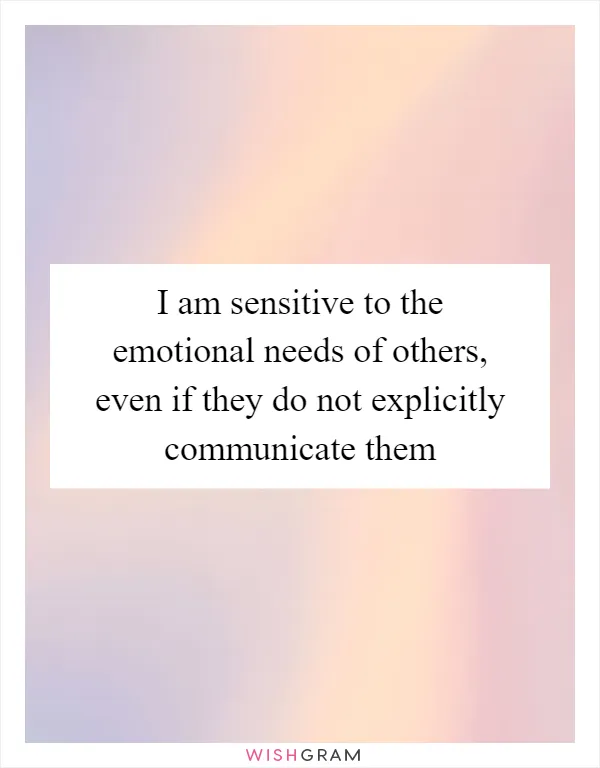I am sensitive to the emotional needs of others, even if they do not explicitly communicate them
As human beings, we all have emotional needs that we want to be met. Sometimes, we may not be able to communicate these needs explicitly, but they are still there. It takes a sensitive person to pick up on these needs and respond accordingly. This is where the affirmation "I am sensitive to the emotional needs of others, even if they do not explicitly communicate them" comes in.
Being sensitive to the emotional needs of others means that you are aware of the subtle cues that people give off. You can tell when someone is feeling down, even if they are trying to hide it. You can sense when someone needs a listening ear or a shoulder to cry on. You can pick up on the unspoken needs of others and respond in a way that is helpful and supportive.
This kind of sensitivity is not something that everyone possesses. It takes a certain level of emotional intelligence to be able to read people in this way. But if you can cultivate this skill, it can be incredibly valuable in your personal and professional relationships.
When you are sensitive to the emotional needs of others, you are able to create deeper connections with people. You can be there for them in a way that others may not be able to. You can offer comfort and support when they need it most. And in return, you will likely receive the same kind of care and attention when you need it.
Of course, being sensitive to the emotional needs of others can also be challenging at times. It can be emotionally draining to constantly be attuned to the needs of others. It can be difficult to know how to respond in a way that is truly helpful. But with practice and self-care, you can develop this skill in a way that is sustainable and fulfilling.
So if you want to be someone who is sensitive to the emotional needs of others, start by affirming it to yourself. Repeat the affirmation "I am sensitive to the emotional needs of others, even if they do not explicitly communicate them" to yourself regularly. And then, practice paying attention to the subtle cues that people give off. Listen to your intuition and respond in a way that feels authentic and supportive. With time and practice, you can become a truly empathetic and caring person.
